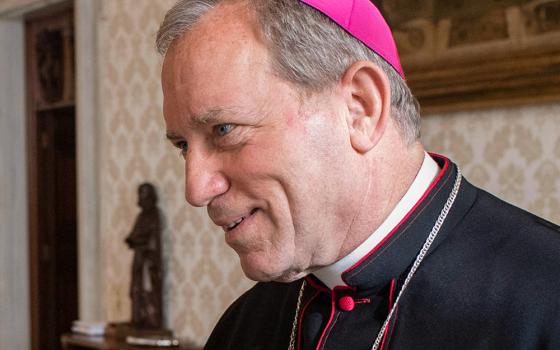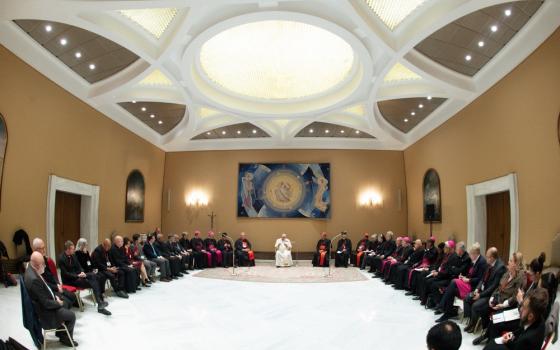This morning brings a crisp, slightly cool breeze and a cloudless sky to Washington, D.C., just as it did eleven years ago today. FDR said of December 7th, that it was a day that would live in infamy, and it has to a degree, although I wonder how many Americans still associate that date with its historic significance. But, “9/11” no longer refers to a date, but to an event, a searing event, and the nation’s reaction to that searing shows how different we are from the days of 1941.
In both instances, America was attacked and caught off-guard. In both instances, thousands of Americans died, 2,400 at Pearl Harbor, almost all of them military men, and some 3,000 in New York, Washington and Shanksville, almost all of them civilians and first-responders. In both instances, America went to war as a consequence of, and response to, the attack. There the similarities cease.
In 1941, the U.S. was attacked by the Empire of Japan. There was nothing faceless or shadowy about the attacker, nor any question about how to fight back. The outstanding issue on December 7, and for the next couple of days, was whether the U.S. would be dragged into the war in Europe as well or if the U.S. would simply go to war against Japan. This latter possibility made Winston Churchill very nervous. The decision by Adolph Hitler to declare war on the U.S. resolved that issue, Churchill breathed more easily, and proved to be one of Hitler’s two greatest strategic blunders, pursuing a delayed invasion of the Soviet Union in late June 1941 being the other. In any event, the U.S. knew on the 8th of December, 1941, what would constitute victory: The conquest of the lands of her enemies and their surrender.
In 2001, the enemy who attacked the United States had no homeland, no state, no army or navy. The terrorists of Al-Qaeda do not require a steel industry or access to oil wells to prosecute their war. They have only their grievances against the West, combined with a view of the world that is one-part apocalypse and one part nihilism, resulting in an ideology that celebrates suicide and murder. They live off the land and under the protection of tribal warlords whose worldview is decidedly pre-modern. On September 12th, it was not clear at all how we should respond, how long the war would take, or even what it would mean to win a war the central feature of which is its asymmetry.
What have been the lessons of the last eleven years? One lesson stands out to my mind above all the rest. When a democracy goes to war, the people, the demos, must go to war. It is easy – and correct – to fault President George W. Bush for taking the U.S. to war in Iraq, but I do not believe that was his biggest mistake. I think his biggest mistake was to demand nothing of the American people except from the one percent who wear the nation’s uniform. From them, much was demanded and they bravely paid the price. From the rest of us, nothing, not an increase in our taxes to pay for the war, not a campaign for war bonds, not a draft, not a diligent campaign to reduce our dependence on foreign oil which adds geo-strategic importance to long-simmering conflicts in the most volatile region in the world, nothing. The rest of us were told to go shopping, the better to bolster the economy. The divide between the average citizen and our military families has grown as they experienced the war and we watched it on television.
Of course, our men and women are still fighting in Afghanistan. No one knows how that will turn out, whether the Afghan military and police will be able to keep their country from becoming a haven for terrorists again once we leave. The Obama administration gets high marks for pursuing bin Laden, although there was something creepy, and decidedly un-Christian, about the way Vice President Joe Biden linked the killing of bin Laden with the idea of national healing. Death does not heal. I did not feel remorse at the killing of bin Laden. I felt the way I would if told a friend had successfully had a cancerous tumor removed. I recognize, too, that a person is not a cancer and that my lack of remorse requires contrition and penance from me, but I can’t deny that is how I felt. I did not, however, feel any healing.
Growing up, I wondered what it would take to end the violence in Northern Ireland. I remember the Red Brigades and other terrorist groups in Europe during the 1970s, committing murder and other atrocities. Those examples of violence have either been resolved or diminished. I hope it will be so in the world of radicalized Islamicists, but it is as foolish to believe there will always be Al-Qaeda terrorism as it is to believe we must not forcefully confront the terrorists.
There is one thing we can know for certain. At some point today, we should all take a moment and say a prayer for the brave firefighters and police who ran up the stairs of the burning towers, not down, of the men and women in the military who went back into the Pentagon to save the injured, and for the passengers on Flight 93 who tried to take back control of their airplane from the terrorists rather than let it be crashed into the U.S. Capitol. Say a prayer, too, for the men and women who have fought in the wars since, who answered their nation’s call, not matter what you think of the political wisdom of that call. Finally, say a prayer for peace.




